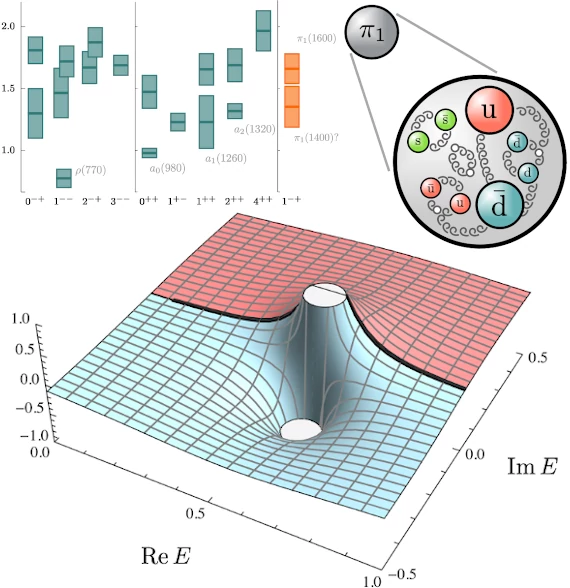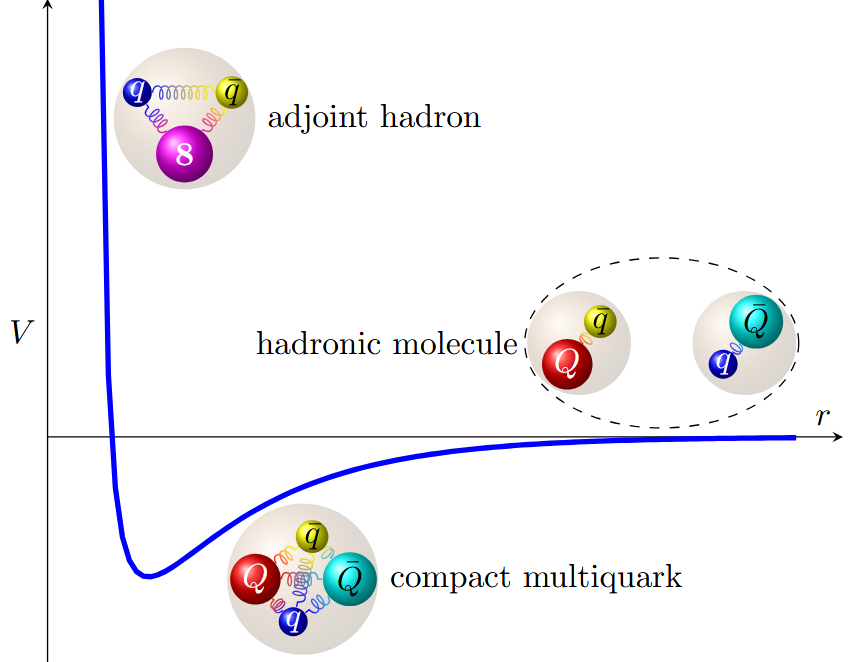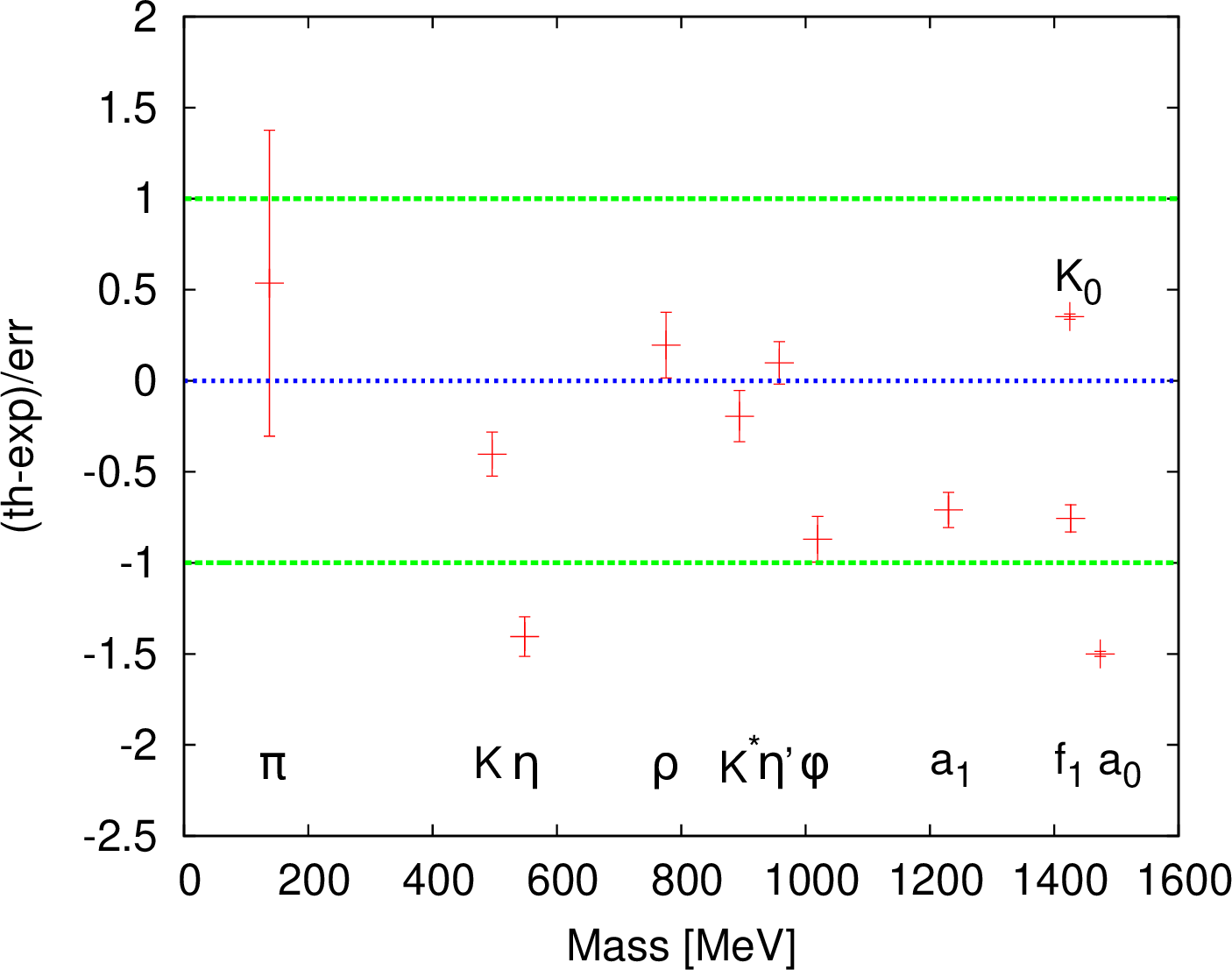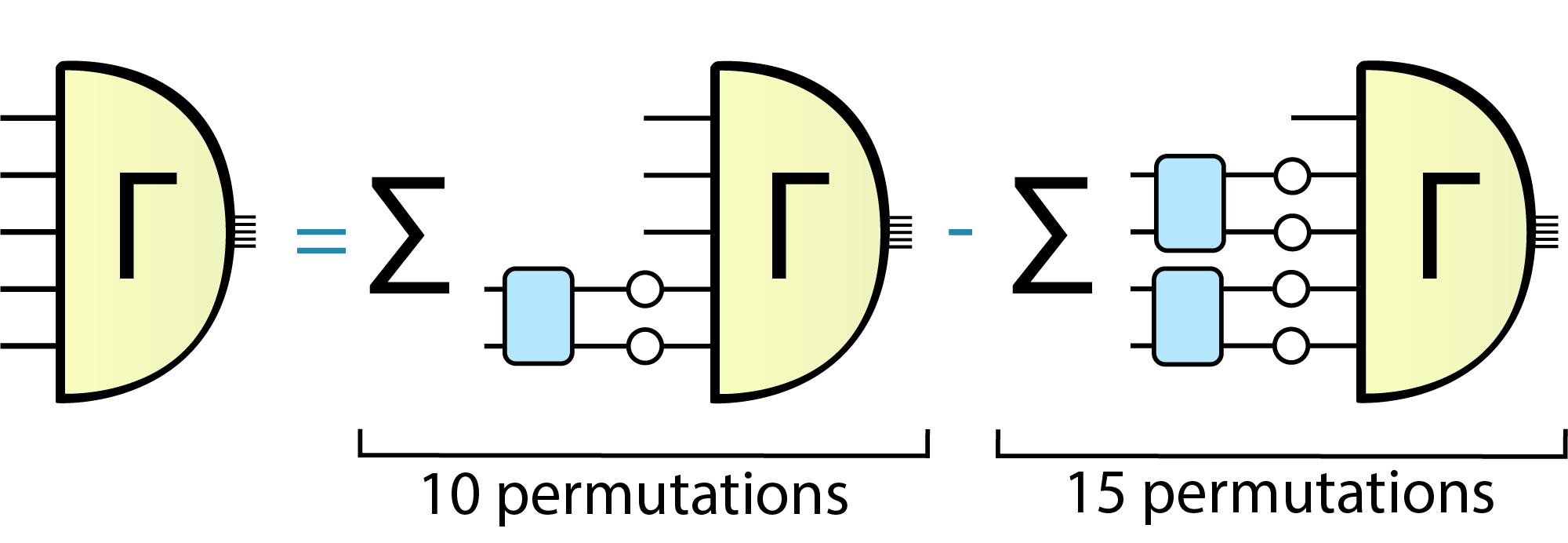The Exo(tic) Had(ron) Collaboration started in 2023 to explore all aspects of exotic hadron physics, from predictions within lattice QCD, through reliable extraction of their existence and properties from experimental data, to descriptions of their structure within phenomenological models.

News
Read allHidden-Strangeness Tetraquarks in the Dynamical Diquark Model
The dynamical diquark model describes multiquark exotic hadrons in terms of diquark components nucleated by heavy quarks, and successfully explains multiple features of hidden-charm and -bottom exotics. In a recent paper by Rich Lebed (ASU, co-PI) and Shahriyar Jafarzade (ASU, ExoHad postdoc), the model was applied to the marginally heavy case of hidden-strange states to probe whether mesons near 2 GeV with peculiar properties, such as $\phi(2170)$, $f_2(2340)$, and $X(2370)$, are possible Read more
Adjoint hadrons reveal the pattern of exotic hidden-heavy hadrons
An overarching explanation of exotic hadrons containing a heavy quark-antiquark pair has eluded the theoretical physics community for more than two decades. A recent study by Eric Braaten (OSU, co-PI) and Roberto Bruschini (OSU, ExoHad postdoc) points out that the pattern of these exotic hidden-heavy hadrons is largely determined by the spectrum of adjoint hadrons, which are the energy levels of quarks and gluons bound to a static color-octet source. The study explains exotic hidden-heavy Read more
Quenched and unquenched quark models can explain the bottomonium sector
An open question in hadronic phenomenology concerns the "unquenching" effects of higher Fock space components on the leading Fock space description of hadrons. In a paper by Eric Swanson (UPitt, co-PI), in collaboration with Muhammad Atif Sultan (Punjab U.), Wei Hao, and Lei Chang (Nankai U.), we address this by comparing the bottomonium spectrum as computed with the relativized Godfrey-Isgur quark model and an unquenched coupled channel model driven by the ${}^3P_0$ mechanism of hadronic Read more
Ordinary and exotic mesons in the extended LSM
Shahriyar Jafarzade (ASU, ExoHad postdoc), in collaboration with Francesco Giacosa (JKU), Péter Kovács (Wigner RCP) investigated the spectrum of both ordinary and exotic mesons within the framework of the extended Linear Sigma Model (eLSM). The model includes scalar, pseudoscalar, vector, axial-vector, and higher-spin mesons, enabling a comprehensive description of light mesons with quantum numbers $J = 0$, $1$, $2$, and $3$. Beyond conventional quark-antiquark configurations, the eLSM Read more
Five-body systems with Bethe-Salpeter equations
In a paper led by Gernot Eichmann (Graz U., co-PI), in collaboration with Maria Teresa Peña (IST Lisbon) and Raul Torres (IST Lisbon), we extend the Bethe-Salpeter formalism to systems composed of five valence particles. To make the calculations manageable, we implement properties of the permutation group S5 and construct an approximation based on intermediate two- and three-body poles. We extract the five-body ground and excited states, along with the spectra obtained from the two-, three-, Read more





